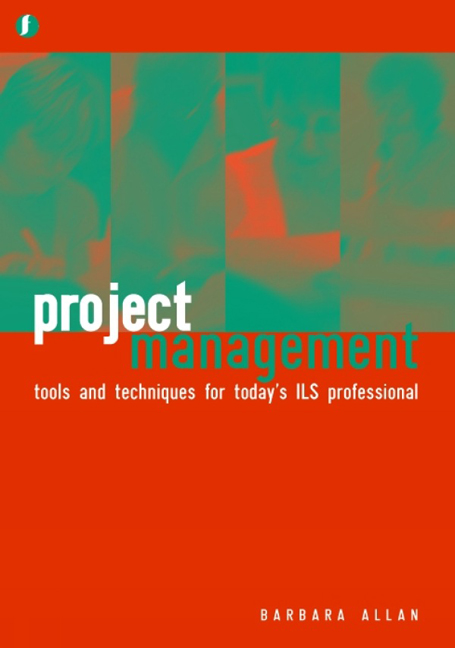Book contents
- Frontmatter
- Contents
- List of tables
- List of figures
- Acknowledgements
- Part 1 Introduction
- Part 2 The project life cycle, systems and processes
- 2 The project life cycle and project analysis
- 3 Planning the project
- 4 Implementation
- 5 Evaluation and dissemination
- 6 The money side of projects
- 7 Using ICT to support the project
- Part 3 Projects and people
- Appendix A The language of funding
- Appendix B Resources
- Index
3 - Planning the project
from Part 2 - The project life cycle, systems and processes
Published online by Cambridge University Press: 08 June 2018
- Frontmatter
- Contents
- List of tables
- List of figures
- Acknowledgements
- Part 1 Introduction
- Part 2 The project life cycle, systems and processes
- 2 The project life cycle and project analysis
- 3 Planning the project
- 4 Implementation
- 5 Evaluation and dissemination
- 6 The money side of projects
- 7 Using ICT to support the project
- Part 3 Projects and people
- Appendix A The language of funding
- Appendix B Resources
- Index
Summary
Introduction
The purpose of this chapter is to introduce the project planning process and to highlight the importance of planning to successful project management. Project planning involves researching the project, thinking ahead and identifying what needs to be done, the people who will carry out the work and the cost. In addition it involves identifying potential problems and developing contingency plans.
The structure of this chapter is based around the three stages of the project planning process: researching the project, detailed planning, and finally documenting and communicating the plan.
Researching the project
Researching the project involves both an external and internal analysis of the project environment. The external environment will help you to identify relevant political, economic or social factors that may have an impact on your project. In addition it will enable you to identify and learn from current good practice within the library and information profession. Information practitioners have extensive experience in a wide range of projects and, in general, they are very willing to share it. Sources of general information and advice include professional literature, conferences, networks and individual practitioners. E-mail discussion lists provide an important source of practical help and advice and these are considered in Chapter 7. Visits are often a useful way of finding out how other practitioners have tackled the same situation as shown in the following example.
Example Installation of an access control system in a university library
The following quotation demonstrates the value of taking time to visit other ILS that have tackled a similar project to your own.
‘Linda Dixon, the Lending Services Librarian, organized two visits, one to the Economics Library at Oxford University and the other to Salford University. These visits were vital to our understanding of how the whole system would work and began to answer some of our questions relating to staffing, integration with our LMS and procedures for visitors. Although the Economics Library is a much smaller operation the principles behind the system are the same and it was extremely useful to see it working and hear from the staff how easy it was to operate.
- Type
- Chapter
- Information
- Project ManagementTools and techniques for today's ILS professional, pp. 37 - 60Publisher: FacetPrint publication year: 2004



